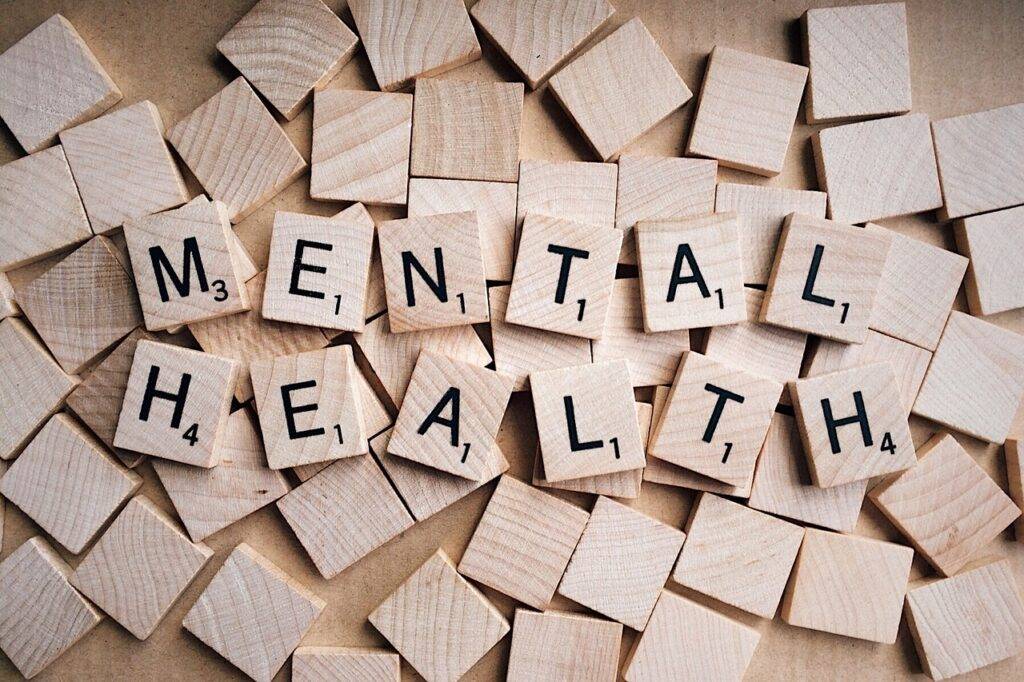Do you ever feel like you’re constantly racing against the clock? Finding the time to care for ourselves can be challenging between work, family, and personal obligations. However, caring for our health is essential to living a happy and fulfilling life. Did you know that small, simple habits can profoundly impact our mental health?
Taking care of our health is more crucial than ever in today’s fast-paced, ever-changing environment. Neglecting mental issues can have detrimental effects on our physical health, relationships, and ability to go about our daily lives. Yet, we frequently put our physical health first and ignore our mental health conditions, resulting in a high stress, worry, and burnout. The good news is that maintaining our health doesn’t have to be complicated or time-consuming. In reality, ten simple habits can help us all maintain better mental health right now. These below-mentioned simple habits to improve mental health.
Top 10 habits to boost mental health US:
1. Exercise
Physical activity is not only good for our physical health, but it also has many benefits for our mental health. Regular exercise can help people with anxiety and depression feel better, improve their mood, and feel better about themselves. You don’t have to work out hard for these benefits to happen. Light exercises like walking, jogging, or cycling can significantly impact your health. Try to insert some body movement into your daily routine, like going for a walk during your lunch break or taking the stairs instead of the elevator.
Endorphins help reduce the symptoms of anxiety and depression. It is a natural mood booster that is released when you exercise. Exercise can also help in a sound sleep, feeling better about oneself, and giving a sense of accomplishment. Therefore, find an activity you enjoy and make it a regular part of your schedule to make it a habit. At least a few days a week, try to get at least 30 minutes of moderate exercises, such as brisk walking or cycling
2. Mindfulness and Meditation
Mindfulness and meditation are two practices that can help you to be more present and aware of your thoughts and feelings. It has been shown that they help people feel less stressed, anxious, and depressed. Simple meditations like deep breathing, body scanning, or mindful listening can help you incorporate mindfulness and meditation into your daily life is good for mental health. There are also a lot of online tutorials that can help you learn how to be regular in meditation.
To start practicing mindfulness, take a few deep breaths and focus on your breath for a few minutes daily. When your mind starts to wander, bring it back to your breath gently. Apps like Headspace or Calm can help you get started with meditation by giving you guided meditations. Try to set aside a few minutes each day to practice mindfulness and meditation, like right before bed or after you wake up.
4. Get Enough Sleep
Sleep is important for our physical and mental health care. Lack of sleep can make you tired, irritable, and unable to focus. A few tips to sleep better are to stick to a regular sleep schedule, stay away from caffeine and alcohol before bed, and make your sleeping space comfortable. Don’t use electronics right before bed because the blue light that screens give off can make it hard to fall asleep. Also, make your bedroom a good place to sleep by ensuring it is cool, quiet, and dark.
Most importantly, avoid working late nights. To stay fresh and active, a person should sleep an average of 8 hours daily. An active person can work more efficiently than the one who avoids his sleep for work. Inculcate this habit today to boost your mental health.
4. Connect with Others
Our mental health depends on social connections. They can aid you so that you feel less lonely and isolated and give emotional support when things are hard. Thus, stay in touch with your friends and family, join a social group, or do community service. Also, remember that making friends takes work and that it’s okay to reach out to others first.
When you are connected, you keep getting gossip that is entertaining and full of life. This will keep you indulged and restrict your mind to focus on the negatives.
5. Engage in Hobbies or Creative Activities
Hobbies or creative projects can give you a sense of accomplishment, boost self-esteem, and help you feel less pressured. Many hobbies and creative activities include painting, writing, gardening, or playing an instrument. Find something you enjoy doing and make time for it often. This is one of the great mental health support.
Think about things you like doing or things you’ve always wanted to try. Consider signing up for a class or workshop to learn something new, or set aside some time each week to do something you enjoy. This will help you focus less on the negatives and work on the positives. And that’s what everyone should aim for.
6. Spend Time Outdoors
Spending time in nature can help calm their minds and lessen the effects of stress, anxiety, and depression. Like always said, “Nature heals” and you will definitely get the results too. The natural process has always been a perfect way to improve mental health. Try to spend time outside as often as possible, whether going for a walk in a park, hiking in the mountains, or just sitting in your backyard.
Our minds and bodies can feel calmer after spending time in nature, but many of us spend most of our time indoors. You should not always seek a reason for spending time outdoors. Sitting for at least half an hour every day in a fresh environment outside is good practice.
7. Show appreciation
Practicing gratitude can help you notice the good things in your life and make you feel happier and more connected. Try keeping a gratitude journal where you write down things you are thankful for every day. Taking a moment to appreciate the good things in your life will help your thoughts to come out and eventually make you calmer.
When you appreciate others, you set an admirable identity. People will never forget your generosity and pass on healthy vibes and tokens of love.
8. Limit Your Screen Time
Excessive screen time can harm our mental health by raising stress, anxiety, and depression. Limit how much time you spend in front of a screen, especially before bed. Instead, try reading, working out, or spending time with people you care about.
It can be hard to cut back on screen time, even though it can be bad for our mental health. Set times each day to check your email or social media to make it easier to limit the amount of time you spend in front of a screen. You can use various online tools to cut short your screen time and reduce phone usage.
9. Eat a healthy diet
Nutrition has a significant impact on our mental health. We generally do not talk about it, but it does have a considerable impact. A healthy, well-balanced diet can help lessen the effects of anxiety and depression and make us feel better overall. Try eating more fruits, veggies, whole grains, lean proteins, less processed foods, sugary drinks, and alcohol.
Also, try to cut back on processed foods, sugary drinks, and alcohol, all of which can make us lazy and drain our energy. Making your own meals at home can be a great way to ensure you eat healthy, nutritious foods. Maximum people’s mood is directly proportional to the food they eat. So, you should not wholly avoid tasty/junk foods but try reducing them each day.
10. Ask a professional for help
If you have trouble with your mental well being, you must get help from a professional. You can get the support and resources you need to improve your health from mental health help professionals like therapists, counselors, and psychiatrists. If you need help, you can effortlessly search for counselors in the US and book your appointment.
Feel free to ask for assistance if you’re feeling overwhelmed or needing help with your health. You will find it easier to share your thoughts and problems with a counselor than with your family. And this is why professional help is so important.
Bottom Lines
Improving your mental illness might be a simple yet effective strategy to improve your overall health. You may improve your mental health by implementing these top tips into your everyday routine. Keep in mind that it takes time and effort to create new habits, so be patient with yourself. Yet, if you put in the effort and don’t give up, you can improve the quality of your own life.
Ultimately, it takes self-awareness, self-care, and self-compassion to maintain one’s mental health. Maintaining good health requires constant vigilance over one’s internal and external processes. You may overcome obstacles and develop resilience with the help of the correct resources, people, and support, resulting in a more rewarding and contented life. So, take the first step toward greater mental health today and reap the rewards. Get more on how to be healthy and fit by reading Health O Reviews. Keep in mind that you deserve to be happy and healthy.






